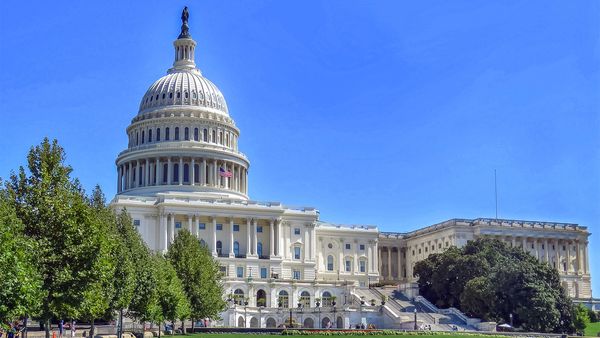Disney (DIS) is seeing the benefits of the post-pandemic rebound, as demonstrated in its latest financial results.
The entertainment giant has been filling its theme parks and cruise ships and is seeing viewership on its streaming platforms continue to surge.
But there's one area of its media business that has been in a long-term slide. That's raised questions among some about the unit's future with the company.
ESPN was at the peak of its popularity in 2011 when it was in 100.13 million homes.
Even at that time, investor worries about cord cutting were the topic of discussion.
Back then ESPN used to give quarterly reports, and its latest quarterly report said Nielsen data showed a cord-cutting rate of just 0.18%, down from 0.28% in the previous quarter.
"We continue to see minuscule amounts of cord-cutting among U.S. households," Glenn Enoch, VP of Integrated Media Research of ESPN said at the time, according to Fierce Video.
"We got a little worn out reading headline after headline saying, 'Cord-cutting, it's a disaster; young people are abandoning TV.' For our strategic purposes, we needed to know what was really going on."
Obviously, a decade is a long time, and over that time the headlines about cord cutting only increased.
Last year, ESPN lost another 10% of its viewership and is now seen in 76 million U.S. households. Over the past decade ESPN has lost about a quarter of its audience as consumers now have more choices about how and whether they want to pay for the sports-centric network or its alternatives.
This dynamic has led many investors question whether Disney (DIS), ESPN's parent company, should spin off the company or sell it entirely.
Bob Chapek Speaks on ESPN
Against this backdrop, Disney announced this week that it is raising the price of ESPN+ to $9.99 per month from $6.99 per month.
The direct to consumer streaming version of its cable network big brother saw subscribers rise to 22.8 million in the most recent reporting period.
An analyst on the company's earnings call wondered about Disney's commitment to ESPN. Here was CEO Bob Chapek's response:
"In terms of the strategy on sports, we're continually enamored by the power of sports in terms of viewership and what it adds to out overall portfolio, particularly in an advertising type world."
However, unlike 10 years ago, it seems the people in charge understand that cord cutting does represent a huge shift for an entity in ESPN that continues to bring in billions in revenue annually.
"What we're all preparing for is the future of what ESPN would look like in a direct-to-consumer -- in a true direct-to-consumer fashion -- and I think the way we're looking at this is we want to proactively prepare for the future without prematurely disrupting the cash flow that we get from linear networks now," Chapek said.
To stem the tide of losses, Chapek says Disney has been negotiating "flexibility" into the broadcast rights for any new rights that they have acquired recently.
"We're still bullish on sports," Chapek said ending his response. "We believe there's tremendous degrees of freedom in terms of what ESPN DTC ultimately looks like."
Disney's Other Businesses Are Healthy
Disney has reason to be confident in its future after the third quarter results the company revealed this week.
Disney said adjusted diluted earnings for the three months ending in June, the group's fiscal third quarter, came in at $1.09 per share, up 36.25% from the same period last year and firmly ahead of the Street forecast of 97 cents per share.
Group revenues, Disney said, rose 26% to $21.5 billion, topping Street forecasts, while overall subscriber totals for its Disney+ hit 152.1 million, topping analysts' estimates by around 3 million.
Disney added 14.4 million subscribers over the quarter, with ESPN+ totaling 22.8 million paid subscribers and Hulu rising to 46.2 million. Disney's total subs of 221.1 million are now narrowly ahead of the 220.67 million last tallied by Netflix (NFLX).
Parks and Experiences revenues came in at $7.4 billion, topping the Street's estimate and rising more than 70% from last year as visitors returned to re-open resorts and cruises around the world, particularly in Hong Kong and the United States.







